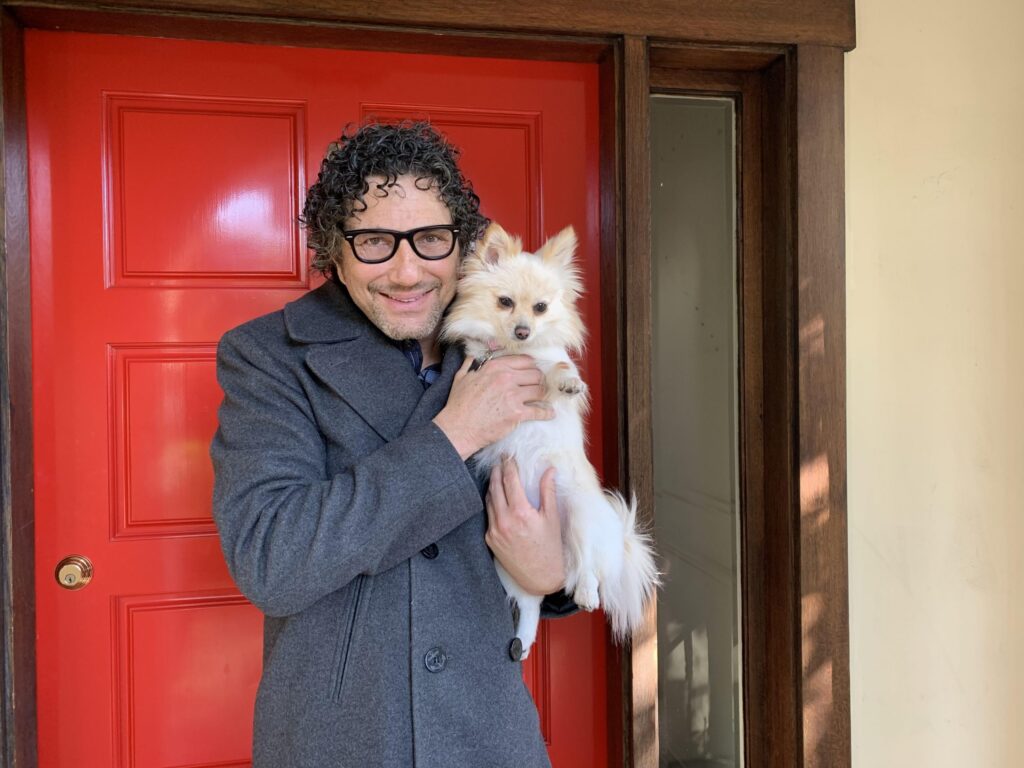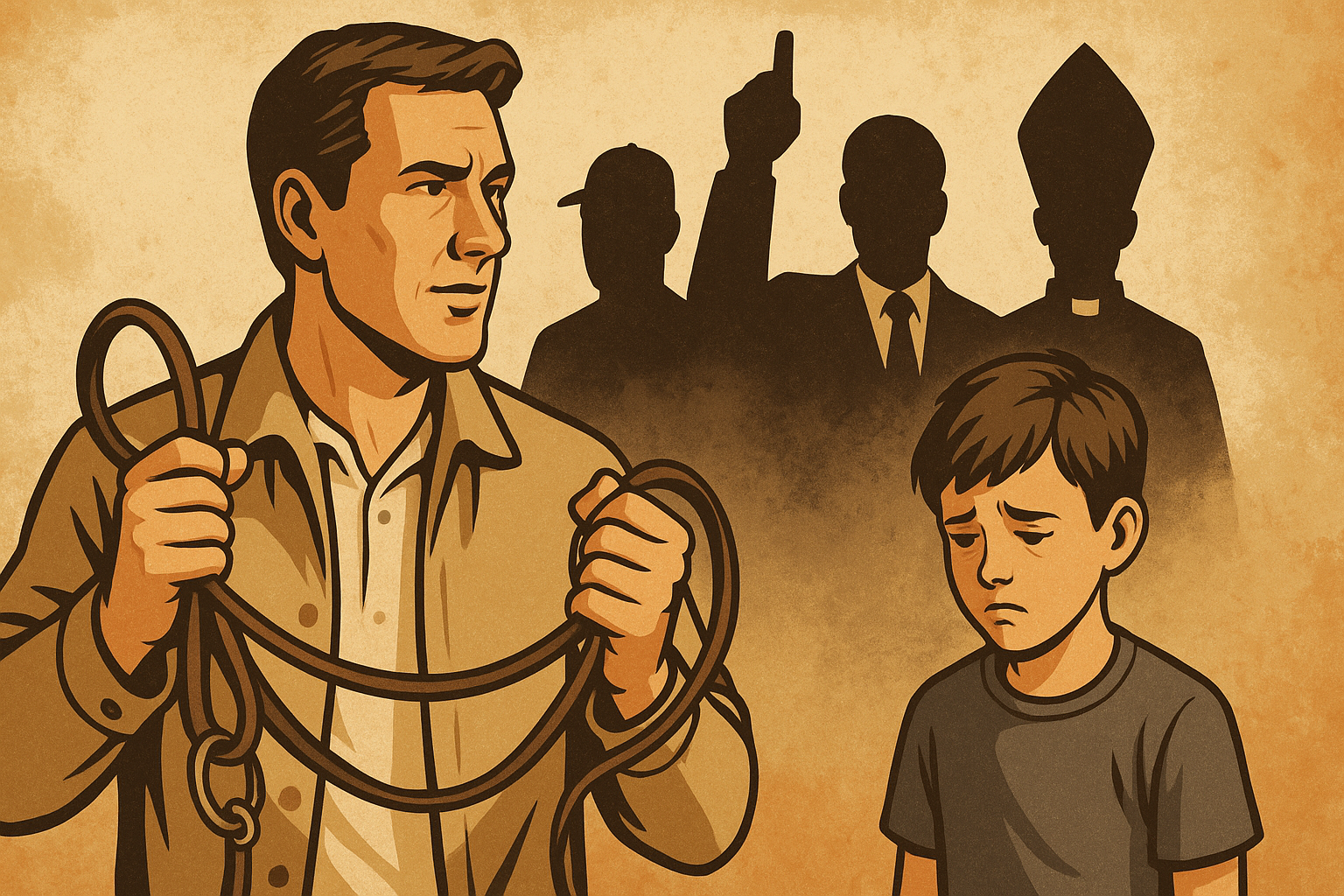As anyone with any proximity to addiction knows, the recovery world is rife with colorful life stories. Still, addiction entrepreneur Alex Shohet’s is unusually rich. “I’ve had a long and complicated career,” he says. “I probably have a story that’s out of some kind of crime novel.” Shohet’s most recent venture is The Red Door, a luxe sober living home founded in 2018 that offers recovery support while also serving as an incubator space for its members’ business ventures, creative projects and start-up ideas.
If that marriage seems counter-intuitive, that’s because it is—and Shohet understands that. “We always call it the experiment,” he says. “There’s a linear approach to recovery which is to get clean and sober and then when you’re healthy enough, go back and start working. What we’re trying to say is, ‘Well, it’s not actually linear.’” For Shohet, The Red Door represents a point on his own business and recovery trajectory some 34 years removed from where it all started. To understand it in context, it’s best to go back to the beginning.
As a young man, Shohet attended UCLA but was battling addiction at the time. “I became a heroin and cocaine user,” he says. “I never graduated. I was going in and out of treatment and in and out of whatever else.” This rocky period of Shohet’s life led to him dropping out of college and attending an inpatient program at Impact Drug and Alcohol Treatment Center in Pasadena. “I stayed there for six months and then did about 12 months of outpatient,” he says.
In 1988, Shohet left Impact with newfound sobriety. But he also had a series of unpleasant realizations after getting back into the real world. “When I was in Impact, there was a period of time where you’re supposed to go out and get a job,” he says. “The challenge with that is: what do you put on your resume? I was doing petty crimes, I was a heroin and cocaine drug addict, I’d spent six months in a treatment center for people coming out of prison. Was I supposed to write all that?”
The common wisdom of 12-Step oriented programs is that recovering addicts ought to pursue a life of rigorous honesty and authenticity. Unfortunately, Shohet found it difficult to be both rigorously honest and gainfully employed. “I’m not saying I encourage this,” he says, “but faced with the opportunity of not having work, I lied on my resume.” Shortly thereafter, Shohet found employment working with personal computers (on the strength of his uncompleted engineering degree from UCLA). Fortunately, luckier times were ahead.
With the guidance of a friend and mentor, Shohet started his own computer company and found success during the dot-com boom of the 90s. In 2000, Shohet’s sponsor died of AIDS and his best friend died from relapse complications. On top of that, his wife became pregnant right as her brother passed away. Combined with the burst of the dot-com bubble, the stress led to Shohet relapsing and finding himself in rehab once again at Beit T’Shuvah. “I went [to rehab] the first time as basically a homeless person,” Shohet says. “When I went in the second time, I went in as a yuppie.”
Though his position had changed, he noticed the same problem as before: recovering addicts were finding it nearly impossible to reintegrate into the labor force. After researching the problem more on his own, Shohet embarked on new business ventures. The first was Wonderland, a high-end treatment center in the Hollywood Hills which has since closed amidst legal disputes with his then-business partner, Dr. Howard Samuels. Shohet then split off to found ONE80Center, which also closed amidst legal troubles related to two wrongful death suits. After years of legal battles, Shohet found himself back at square one. “After the litigation was over,” he says, “I went back and started saying, ‘Well, one thing I thought was a missing element in previous versions of treatment was entrepreneurship.’”
Through all his experiences in the Wild West of the high-end California rehab industry, Shohet says he always remained focused on his social mission. “I feel like what we do [at The Red Door] is standing on the back of all the other programs that have existed before us,” he says. “In the 80s, the places with work components were Salvation Army, Delancey Street, Impact. The thing about it was that most of the kinds of employment available were blue-collar work. But there was a big part of the population left out of that.”
Historically speaking, it’s no secret that jobs within the recovery industry are some of the best jobs available to recovering addicts. Still, those jobs represent a very narrow slice of the entire labor market. “Maybe we can expand on the blue-collar work and become more relevant or more current,” he says. “People can come out of these programs and feel like they can compete and succeed.”
Despite the entrepreneurial aspect, The Red Door still has all the rigor of any other sober living home. The house has five bedrooms and five-and-a-half bathrooms and equips clients with their own customized recovery teams of therapists, psychiatrists and other treatment professionals. Above all, Shohet is hoping to change the way addiction is treated and to break down the stereotypes society has about people in recovery.
“Many addicts have an incredible amount of drive,” Shohet says. “When it’s harnessed towards their addictions, it’s very destructive. But that drive can be harnessed or directed into other things.” Speaking personally, Shohet says that his entrepreneurial journey and recovery are more or less inseparable—and he hopes the Red Door can impart that wisdom onto others like himself. “I’m passionately interested in creating things and building things and learning everything I can about business,” he says. “But I’m also an addict.”



